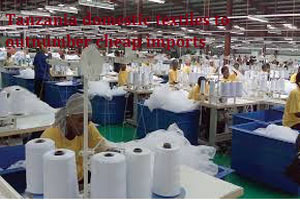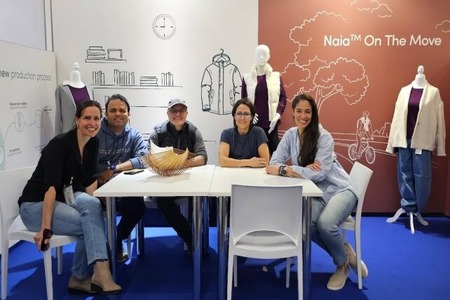
Tanzania domestic textiles to outnumber cheap imports
YarnsandFibers News Bureau 2016-12-12 16:00:00 – AfricaTanzania is making efforts to protect its domestic textile market. For that, efforts are being made to introduce them in local markets instead of cheap imports. More manufacturers were moving huge sales to the regional markets of the East, Central and Southern Africa than they did to the local markets.Also, instead of dealing with second-hand clothes, traders can start buying and selling locally manufactured garment and earn maximum returns.
Trade of second-hand clothes popularly known as (mitumba) trade has become the mainstay of millions of informal traders. It has in fact created employment down to the village level, although essentially not contributing to the nations' economic development. As used-clothes trade flourished, textile industries miserably declined and many of them have closed shop.
Their products could not compete with second-hand imported clothes in quality or price.
An official with A to Z textiles, Mr Fadhili Mbise, said at the ongoing industry exhibitions at the DITF along Kilwa Road that local manufacturers were capable of meeting local and international market demand.
He said that they sell more outside than in the local market and added that if the total production was intended for the internal market, there was enough capacity to meet domestic demands.
He further said that to promote local textile manufacturing industries, there should be government concerted efforts to protect them from low quality garment imports.He said the importation of second hand clothes has been increasing without taking into account the immense damages to the investments on domestic manufacturers, jobs and the economy.
He said the prices of garment made locally were affordable for all classes of people and sometimes cheaper than prices of imported second-hand clothes. Taxing more second-hand clothes can be one of the measures taken to reduce importation.
Market Intelligence
Ask for free sample Report

experience
Customer Base
dedicated team
Countries Served Worldwide









